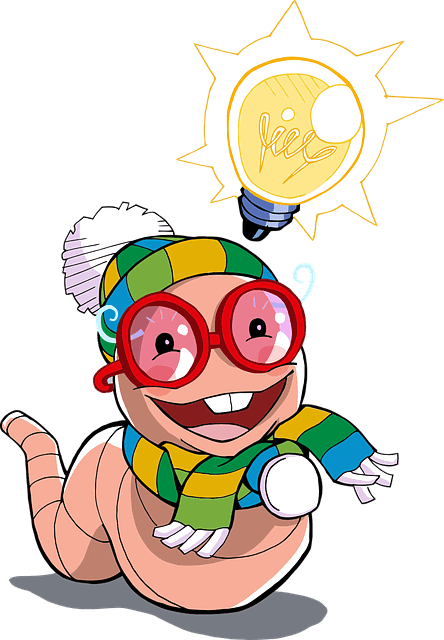
Pinworms (enterobiasis) in children
It seems that no other matter disturbs parents’ as much as seeing or even suspecting pinworm infection in their children, or themselves. It seems that the sight of a pinworm travelling around the anus in children drives mad even the sanest of parents.
I can assume that past the obvious sense of disgust, many parents think that pinworms are dangerous or can cause complications.
But the truth is, as you will learn in this following post, that regular pinworms (enterobiasis), are simple worms, not causing any illness for the most part in children (at most may cause discomfort and itchiness, mainly at night).
I once heard someone smart saying that parents should refer to the simple pinworms as just another household pet, such as a dog, a cat or goldfish.
What do these pinworms cause in children and adults?
Most of the infections in children are asymptomatic, but in some cases there is itchiness in the perianal region (around the anus). In little girls there may also be itchiness in the vaginal area.
The pinworms reside in the gastrointestinal system and at night the female travels outside the anus to lay eggs. The travelling around the anus and laying of the sticky eggs are what causes the most common symptom – restlessness and night-time itchiness around the anus.
The females lay about 10,000 eggs that hatch within 6 hours. The child itches around the area, “collect” the eggs in his fingers, and this way the chain of infection precede to another person, or re-infecting the child himself.
In addition, under some humidity conditions, the eggs may stay in the surrounding area (bedsheets, pets fur and even in dust), for a period of weeks especially in cold and humid environment. When touching these items, including shaking of bedsheets or cloths with eggs on them – this may also cause re-infection.
What are the typical symptoms of pinworms in children?
Again – night-time itchiness.
Many times I hear from parents about day time itchiness, around the anus or the genital area, which parents attribute to pinworms, and even give their children treatment for pinworms. Most itchiness in this area occurring during daytime is caused by dermatitis (mild skin inflammation) which is common in children in these areas, regardless of pinworms.
Signs of this kind of dermatitis include redness around the anus or the vulva. This dermatitis is caused by wiping the area in a false manner and poor hygiene. In these cases it is recommended to keep good hygiene, changing the undergarments frequently, avoiding bathing soaps and sometimes even local cream.
On the other hand, when a child wakes up in the middle of the night and reaches for the anal area and itches uncomfortably, it is most likely that he has pinworms, whether the parents saw them or not.
In girls, nighttime travelling of the pinworms from the anus to the vagina may occur. In these cases, symptoms will be discomfort rather than itchiness. It is not unlikely that urinary tract infections may occur from bacteria found on the pinworms or from excessive scratching of the area.

What does these pinworms (enterobiasis) do not cause?
Again, I have no intention to argue with Wikipedia or parents accusing worms for various symptoms, but:
– Pinworms do not cause abdominal pain
– Pinworms do no cause teeth grinding
– Pinworms do not cause night time bed wetting
– Pinworms do no cause weight loss
How and where do children get infected with pinworms?
Infection in children most often occurs after ingesting eggs that can be found in the surroundings (as I wrote before, almost anywhere). The child usually touches the eggs unknowingly with his hands and from there – the way to his mouth is short.
How do you diagnose a pinworm infection?
Two options:
A definite diagnosis: finding the eggs (which you cannot see without a microscope) or the pinworms (sized 8-13 millimeter and are seen without a microscope).
An approximated diagnosis: typical symptoms in a child in the appropriate age group, which wakes up at night with itchiness around the anus. If the event recurs several times at one night, or on following nights, it strengthens the likelihood of the diagnosis.
There is a method of attaching a piece of sellotape to the perianal area, for catching eggs laid at night and examining them under the microscope in the morning (their size is about 25-40 micron). Since the worms do not lay eggs every night, some people repeat this method a few nights in a raw. Those who have a microscope in their home and wishes to diagnose using this method – are welcome to try it on themselves for a few days, and then trying it on their child.
I think that an approximated diagnosis according to the criteria mentioned above is reason enough to treat a child.
Is there any non-pharmacological treatment affective against pinworms?
No, I don’t know any other effective treatment. There is a common believe that eating garlic or even applying it to the anal area could help. This action may lead to skin irritation and does not help eradicating the pinworms, which are in fact far away from the anal area. Again, those who wish to try that on their child should try it on themselves first.
What is the common pharmacological treatment against pinworm?
There are three medications commonly used to treat pinworms: Mebendazole, Albendazole and Pyrantel pamoate. All are given in a single dose and repeated in two weeks because they are not completely effective against the eggs. The second dose is intended to act on the larva that developed from the eggs during that time. If after the first dose and before the second one you see worms around the anus, then I recommend starting the regimen again (a dose today and another one after 2 weeks). These treatments are very safe, and it is because of low absorption of the drugs from the intestinal system. There are some reports about diarrhea and gastrointestinal discomfort.
The experience with these medications is limited in children younger than 2 years although Mebendazole and Pyrantel Pamoate can probably be given safety to children older than 1 year. Treatment of children younger between 6-12 months should be carefully discussed with your doctor.
Having said all that, in my estimation, 50% of treatment given in the indication of pinworms are irrelevant and relies on unverified and not-well approximated diagnosis (according to the diagnosis criteria mentions above). This leads to numerous, unnecessary prescription of medications to children. In addition, infection with pinworms is not common under the age of 2 years, and certainly not under the age of 6-12 months. And therefore, in my opinion, although these drugs are very safe to use, treating infants would cause more damage. So I turn to parents everywhere and ask – treat your children only under the indications mentioned above, and not by any other suspicion.
You must remember that even after an effective treatment, recurrence is common. Even in recurrent cases treatment is the same regimen mentioned.
Some doctors recommend giving the medicine 3 days in a raw (and another dose after 2 weeks) if there are many worms spotted. I didn’t found any medical literature supporting this recommendation.
The possibility of eradication of the worms is discussed ahead.
Important tips to use along with the medical treatment?
You can try eradicating the worms using the following methods:
Washing the perianal and genital area at night (when the child itches) or in the morning after, to reduce the number of eggs in the area. A much recommended method.
Maintaining a good hygiene in washing hand thoroughly, and cutting your children nails frequently.
Does every household member need to get treatment for Pinworms?
Opinions in this matter are diverse. Allegedly in the text book it says that every member of the household needs to get treatment in the very same day. There is even mentioning of a little “ceremony” in which all family member showers in the morning, cutting their nails, boils the bed sheets and taking on of the medications together.
Having said that, I would leave the “extreme” measures to households with many recurrent infections. In most cases there is no need for such an extended and aggressive treatment.
What about returning to kindergarten?
Regardless if the child started or did not started treatment, he can return to normal activity in his kindergarten, since pinworms do not pass from one child to another directly.
And most importantly – treat (even in recurrences) without worrying. Treat the pinworm as another household pet you are having…
For comments and questions, please register
